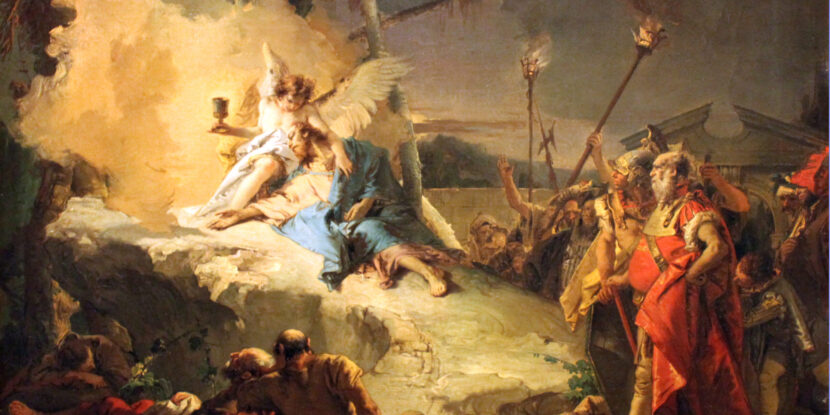Maundy Thursday, the fifth day of Holy Week, heralds the beginning of Jesus’s final hours. On Spy Wednesday, He foretold His death, and Judas Iscariot conspired with Caiaphas, the high priest, to betray Him for thirty pieces of silver. Today, in a borrowed guest room on Mount Zion, He gathered His disciples to share the Passover meal—their Last Supper.
“I have desired to eat this passover with you before I suffer,” Jesus told them, “for I say unto you, I will not any more eat thereof, until it be fulfilled in the kingdom of God.” (Luke 22:15-16.)
Breaking bread, Jesus proclaimed, “This is my body which is given for you: this do in remembrance of me.” (Luke 22:19). Lifting the cup, He told them, “This cup is the new testament in my blood, which is shed for you.” (Luke 22:20). This was the origin of the Eucharist, celebrated every Sunday by many Christians, particularly Catholics and Orthodox.
A warning followed: “But, behold, the hand of him that betrayeth me is with me on the table. And truly the Son of man goeth, as it was determined: but woe unto that man by whom he is betrayed!” (Luke 22:21-22). He was well aware of Judas’s treachery, but allowed matters to unfold regardless, to fulfill the will of the Father.
GETHSEMANE.
The Athanasian Creed, held by Roman Catholics, Anglicans, Lutherans, and many other Christians, affirms Christ as both “God and Man. ” The Third Council of Constantinople (681 AD) recognized Christ’s dual natures—human and divine. And so, leading the disciples to the Garden of Gethsemane after their supper, His heart was heavy. “My soul is exceeding sorrowful, even unto death: tarry ye here, and watch with me,” He told St. Peter. (Matthew 26:38.)
A little distance from his disciples, Jesus, as Son of Man, prayed to the Father above that He might be spared from the Cross. “O my Father, if it be possible, let this cup pass from me,” he prayed. (Matthew 26:39)
Nevertheless, He added that He accepted events would unfold “not as I will, but as thou wilt.” (Matthew 26:39). St. Luke records that an angel appeared to Him, strengthening Him, as His sweat fell to the ground like “great drops of blood”—but he accepted His fate for the sake of mankind.
BETRAYED WITH A KISS.
The hour of betrayal arrived soon after Jesus finished praying. An armed multitude, chief priests and temple guards among them, arrived on the scene, and Judas marked Jesus out for arrest with a kiss. Chaos erupted, with St. Peter, wielding a sword, striking off the ear of the high priest’s servant—but Jesus put an end to the tumult, even healing the injured man.
“Thinkest thou that I cannot now pray to my Father, and he shall presently give me more than twelve legions of angels?” Jesus asked, clarifying that He was being seized only because He allowed it.
Turning to His captors, He challenged them, noting when He sat with them teaching in the temple, they dared not arrest Him—coming only in the dead of night, “when darkness reigns.”
And so, they led Him away. On Friday, He would face His trial—and the fulfillment of His mission.


